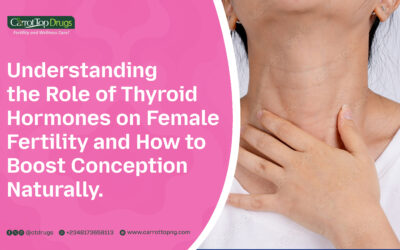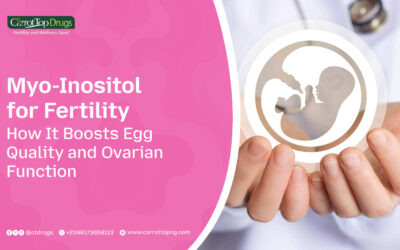Introduction
Our liver plays a vital role in maintaining our overall health and well-being. It is responsible for detoxifying the body, producing bile to aid in digestion, storing essential nutrients, and metabolizing medications. However, certain habits and lifestyle choices can have a negative impact on the liver’s function and lead to various liver problems. In this article, we will explore common habits that affect the liver and discuss ways to maintain a healthy liver.
Statistics Concerning Liver Health
According to the research conducted by Harshad Devarbhavi, Sumeet K. Asrani, Juan Pablo Arab, etc., liver disease accounts for 2 million deaths annually and is responsible for 4% of all deaths (1 out of every 25 deaths worldwide); approximately two-thirds of all liver-related deaths occur in men.
In another research conducted by Sumeet K. Asrani, Harshad Devarbhavi, John Eaton and Patrick S. Kamath, liver disease accounts for approximately 2 million deaths per year worldwide, 1 million due to complications of cirrhosis and 1 million due to viral hepatitis and hepatocellular carcinoma. Cirrhosis is currently the 11th most common cause of death globally and liver cancer is the 16th leading cause of death; combined, they account for 3.5% of all deaths worldwide.
According to the latest WHO data published in 2020, Liver disease deaths in Nigeria reached 38,326 or 2.59% of total deaths. S. C. Nwokediuko , P. C. Osuala, U. V. Uduma, A. K. Alaneme, C. C. Onwuka, C. Mesigo revealed in their research that liver diseases accounted for 7.9% of medical admissions, with primary liver cancer and liver cirrhosis accounting for 44.3% and 20.4%, respectively. The main risk factors were alcohol consumption (52.1%), hepatitis B virus infection (49.4%), ingestion of herbs and roots (45.5%), and cigarette smoking (30.1%).
1. Alcohol Consumption
Excessive alcohol consumption is a leading cause of liver damage. It is one of the common habits that affect the liver. When we consume alcohol, the liver breaks it down into byproducts. Prolonged and heavy drinking can lead to liver inflammation, fatty liver disease, alcoholic hepatitis, and even cirrhosis. To maintain a healthy liver, it is crucial to consume alcohol in moderation or consider avoiding it altogether.
2. Unhealthy Diet
A diet high in processed foods, saturated fats, refined sugars, and excessive salt can significantly impact liver health. Such a diet leads to the accumulation of fat in the liver, causing non-alcoholic fatty liver disease (NAFLD). It is important to prioritize a balanced diet consisting of fruits, vegetables, whole grains, lean proteins, and healthy fats to support liver function.
a. Eating Too Much Sugar
Sugar directly damages the liver. It is one of the many common habits that affect the liver. Studies have shown that sugar can be as toxic as alcohol. Sugar, which is contained in carbonated drinks and artificial sweeteners is converted to fats in the liver and can eventually cause liver disease over time. Natural fruits like apples are recommended to replace food rich in artificial sweeteners. These fruits contain “natural sugar” which the liver can easily break down. Taking enough water is also recommended to replace the intake of carbonated drinks.
b. Excessive Salt Consumption
Taking too much salt can lead to an increase in the blood pressure in your liver’s main artery. Clinical evidence suggests that a high salt intake is associated with nonalcoholic fatty liver disease. This may eventually lead to chronic liver diseases. It is recommended that you should not exceed 1 teaspoon (2,300 milligrams) of salt per day.
c. Eating Diet High in Trans Fat
Trans fat is a type of dietary diet that isn’t good for the liver and other essential organs. Too much trans fat in your diet can increase the risk of developing liver diseases as well as other health problems over time.
Excessive trans fat consumption is known to induce dyslipidemia. It also promotes abdominal and liver fat deposition. The present studies show evidence for a direct effect of trans fat on liver dysfunction which causes disturbances in liver lipid metabolism.
Foods rich in Trans-fat include beef, eggs, and dairy products. Most fast/processed foods are also rich in trans fat. The key to this is moderation, as too much trans fat is bad for your liver.
3. Sedentary Lifestyle
A sedentary lifestyle characterized by a lack of physical activity can harm the liver. It is one of the common habits that affect the liver. Regular exercise promotes blood circulation, helps maintain a healthy weight, and reduces the risk of fatty liver disease. Engaging in moderate-intensity exercises, such as brisk walking, jogging, or cycling, for at least 30 minutes a day can benefit liver health.
4. Obesity
Obesity is closely linked to various liver problems. Excess body weight can lead to the accumulation of fat in the liver cells, contributing to non-alcoholic fatty liver disease and eventually progressing to more severe conditions. Losing weight through a combination of healthy eating and regular exercise is essential for reducing the strain on the liver and preventing liver diseases.
5. Smoking
We can not talk about common habits that affect the liver without mentioning smoking. Smoking is detrimental to overall health, including liver health. The harmful chemicals present in cigarettes can directly damage liver cells and impair their function. Smoking also increases the risk of liver cancer and reduces the effectiveness of certain medications used to treat liver diseases. Quitting smoking is a crucial step toward maintaining a healthy liver.
6. Overuse of Medications
Certain medications, when taken excessively or for prolonged periods, can put a strain on the liver. The abuse of drugs is one of the common habits that affect the liver. Pain relievers, such as acetaminophen, and certain prescription medications can be hepatotoxic and cause liver damage if not used appropriately. It is important to follow prescribed dosages and consult healthcare professionals before taking any medications.
7. Lack of Hydration
Adequate hydration is essential for liver health. Water helps flush out toxins from the body and aids in the proper functioning of all organs, including the liver. It is also one of the common habits that affect the liver. Insufficient hydration can lead to the accumulation of toxins, causing liver stress and impairing liver function. This is one of the common habits that affect the liver. It is recommended to drink an adequate amount of water throughout the day to support optimal liver health.
8. Poor Sleep Patterns
Irregular sleep patterns, inadequate sleep duration, and chronic sleep deprivation can have a negative impact on liver health. During sleep, the body undergoes crucial restorative processes, including liver detoxification. Disrupted sleep patterns can lead to liver inflammation and impaired liver function. Prioritizing a consistent sleep schedule and aiming for 7-8 hours of quality sleep each night is important for maintaining a healthy liver.
9. Exposure to Toxins
Exposure to harmful toxins and chemicals can significantly affect liver health. Industrial chemicals, pollutants, pesticides, and certain cleaning agents can be hepatotoxic and cause liver damage. It is essential to minimize exposure to toxins by using protective measures, such as wearing appropriate gear and ensuring proper ventilation in work or living environments.
Conclusion
Having said these, here are some habits that are good for the liver. They include taking enough water, regular exercise, maintaining healthy body weight, eating a balanced diet (especially with lots of fruits and vegetables), avoiding toxins, taking alcohol responsibly (avoid it if possible), and avoiding the illicit use of drugs.
We also recommended that you get EVERGREEN DETOX. It is especially recommended for people with impaired liver functions. Evergreen Detox supplement helps the liver perform its essential detoxifying functions properly. It is an amazing formula for a total body cleanse and is recommended to reverse liver damage by supporting and detoxifying the liver. It also prevents gallstones, fights free radical damage, and slows down the natural aging process.
FAQs
- Can occasional alcohol consumption harm the liver?
Long-term and excessive alcohol intake can lead to various liver diseases and damage.
- Is it necessary to completely eliminate alcohol to maintain a healthy liver?
Men should limit alcohol to no more than two drinks per day, and women should limit it to one drink per day.
- Can herbal supplements cause liver damage?
It is advisable to consult a healthcare professional before taking any herbal supplements.
- Can liver damage be reversed?
In the early stages, liver damage can be reversible by making positive lifestyle changes. However, advanced liver diseases such as cirrhosis may have irreversible effects.
- Are there any specific foods that promote liver health?
Certain foods, such as leafy greens, citrus fruits, fatty fish, nuts, and olive oil, are beneficial for liver health. Including these foods in a balanced diet can support optimal liver function.

















